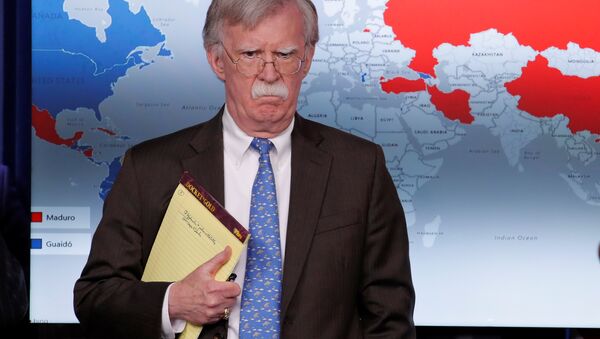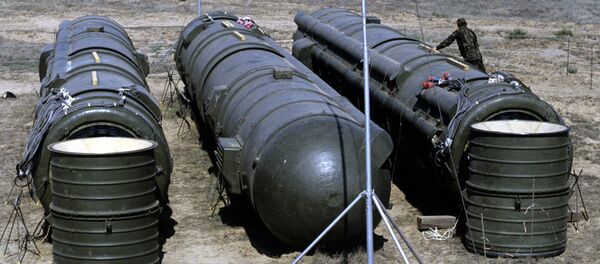Sputnik: Russian President Vladimir Putin has announced that Moscow is going to suspend its commitment to the INF Treaty as a mirror response to Washington's move. Was this expected, because previously, Moscow seemed to hint that regardless of what Washington did, they were going to adhere to the treaty?
Peter Kuznick: Both sides still say they plan to adhere to aspects of the treaty. Both are also beginning to do new research on more intermediate-range missiles. The United States plan right now does not include missiles that can carry nuclear weapons. Russia on the other hand has much more of a capability to develop these kinds of weapons more quickly. So I think from the United States standpoint, that puts Russia at a greater advantage. But Putin has said that he's not going to deploy the new missiles unless the United States does. So it's still possible that the treaty itself might end, but these very, very dangerous new and destabilizing weapons might not be deployed.
Sputnik: Do you think there's any hope that there will be some kind of reconciliation and a return to the terms of the treaty? There is the six-month period during which the US will be phasing it out…
So there is some slight hope, except that there are people in the Trump administration who seem to be looking for an excuse to abrogate the treaty. The main person of course is John Bolton. Bolton doesn't like any of these international treaties. He's been instrumental in destroying others before, and so this behaviour now is consistent with the John Bolton view of the world. He sees these treaties as infringing on American sovereignty. He would rather have an arms race. He's more comfortable with the 1980s insanity, where we had some 70,000 nuclear weapons, the equivalent of 1.5 million Hiroshima bombs. We already have enough nuclear weapons to end life on the planet. Bolton would prefer to have enough to end life many more times than we have now.
Sputnik: So what now? We've heard that there have been commands on both sides to start researching and developing weapons that were forbidden by the INF Treaty. But does either side have anything to gain by actually doing that? Do they really need them, strategically?
Peter Kuznick: No, because this treaty only covers the ground-launched missiles. We already have sea-launched missiles and air-launched missiles that can do the same thing that these missiles do. So there is nothing really to be gained. But the United States claims that it's at a disadvantage versus China, because China has many, perhaps a thousand of these intermediate-range missiles, and China is not party to this treaty. So many people think that the real target of this is not whatever small violations the Russians might have made, but more the threat from China.
The other eight nuclear powers are also modernizing their nuclear arsenals. The point of the modernization is to make the weapons more usable, more efficient. So it's a very dangerous time. Experts at the Bulletin of Atomic Scientists moved the hands of the Doomsday Clock to two minutes before midnight in January of 2018. They've kept them there since, which is the closest that they think we've been to the threat of nuclear Armageddon since 1953, which was the last time it was moved to 2 minutes before midnight, and kept there for much of the 1950s. So we are already in a precarious situation, and Trump and some of his advisors have now made that even more dangerous.
Peter Kuznick: I blame the expansion of NATO for a lot of this. The agreement back in 1990 was that NATO would not expand one thumb's width to the east if the Soviet Union allowed the unification of Germany. And NATO has now expanded thirteen countries to the east, right to Russia's doorstep. The trust or friendship that existed with the end of the Cold War through the 1990s began to erode quickly in the George W. Bush era. The expansion of NATO actually began before Bush took office, but it continued under Bush. Then we've had strong disagreements over the invasion of Iraq, the actions in Libya, the further expansion of NATO. The situation in Ukraine has certainly raised the tensions, the Russian acquisition of Crimea. These things have all fed the narrative right now, and heightened the tensions. So the conflict over Syria, the conflict in the Baltics and Eastern Europe, the situation in Ukraine has created a very unstable and in some ways very, very dangerous kind of situation now.
Dr. Peter Kuznick is the director of the Nuclear Studies Institute at American University in Washington, DC, and an expert on nuclear weapons, the Cold War and the history of US foreign policy. He is the coauthor of The Untold History of the United States together with film director Oliver Stone. The views expressed by Dr. Kuznick are his own, and do not necessarily represent those of Sputnik.






